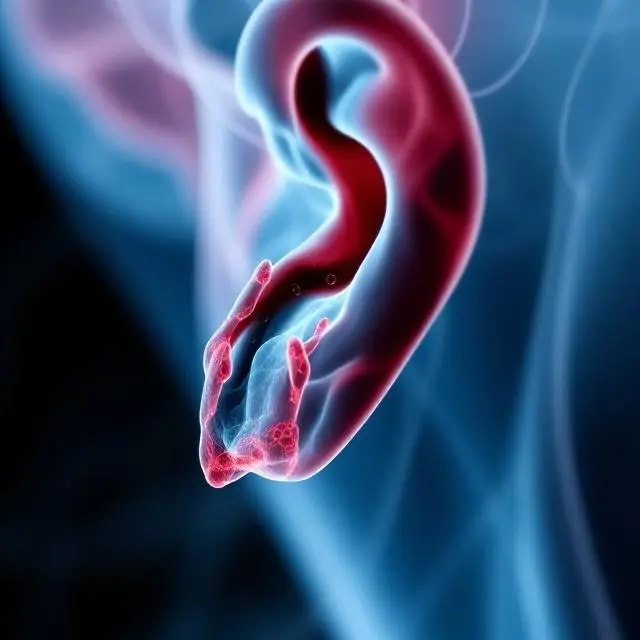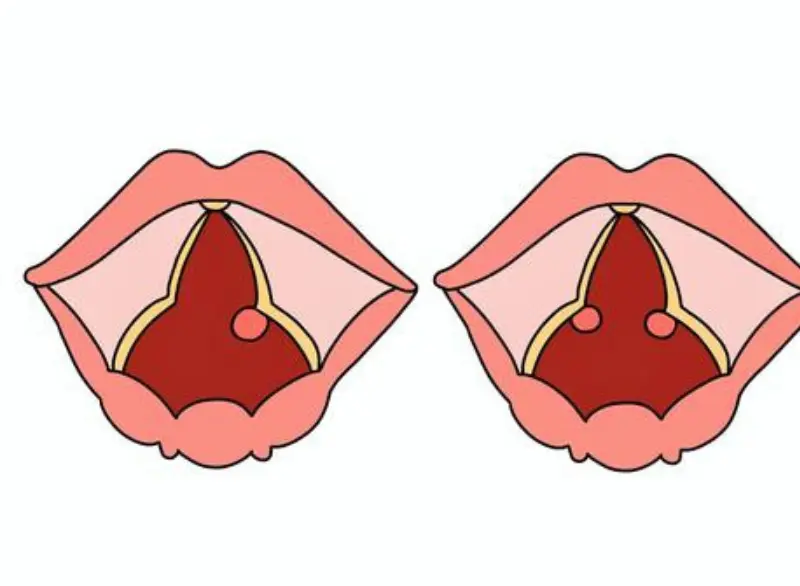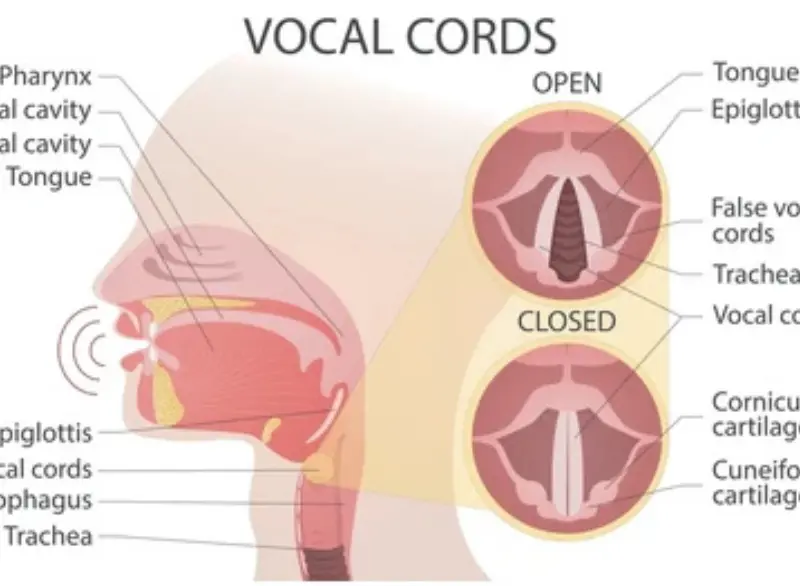Vocal Cord Polyps
Vocal cord polyps are benign growths that affect the voice. They can cause hoarseness, voice fatigue, and difficulty speaking clearly.
- Home
- Service
- Vocal Cord Polyps

Description
Vocal cord polyps usually develop due to vocal strain, irritation, or prolonged misuse of the voice. They often appear in people who speak loudly or frequently, such as teachers, singers, or call center professionals. Smoking, allergies, or acid reflux may also contribute to their formation.
These polyps affect one or both vocal cords, causing the voice to become raspy, breathy, or hoarse. In some cases, they may lead to complete voice loss. Early diagnosis and treatment can help prevent permanent damage and restore normal vocal function.
These polyps affect one or both vocal cords, causing the voice to become raspy, breathy, or hoarse. In some cases, they may lead to complete voice loss. Early diagnosis and treatment can help prevent permanent damage and restore normal vocal function.
Conditions Treated
- Persistent hoarseness
- Voice loss or breathy voice
- Vocal cord nodules or cysts
- Chronic throat irritation
- Difficulty speaking or projecting the voice
Tests and Treatments Offered
- Laryngoscopy
- Voice analysis and acoustic tests
- Speech therapy sessions
- Anti-reflux medications (if needed)
- Polyp removal via microlaryngeal surgery
- Post-surgical voice rehabilitation
Special Offer on Vocal Cord Polyps
Actual Price
₹60,000
₹50,000/- Only
Estimated Stay: 2 Days
Book Appointment
How it works
Procedure and Process Treatment

Evaluation & Diagnosis
Laryngoscopy is performed to visualize the vocal cords and confirm the presence and size of polyps.

Voice Therapy
Initial management often includes speech therapy to reduce strain and improve vocal habits.

Surgical Removal
If polyps persist or are large, they are removed using minimally invasive microsurgery.

Recovery & Voice Care
After surgery, the patient follows voice rest and engages in speech therapy to ensure full recovery and prevent recurrence.

Find Your Voice Again
Lowcost Surgicals offers safe, effective treatment for vocal cord polyps.
With expert ENT care and voice rehabilitation, you can regain clear speech and vocal confidence.
With expert ENT care and voice rehabilitation, you can regain clear speech and vocal confidence.
Frequently Asked Questions
Wondering what others ask? Here are the most common concerns from our patients:
In some cases, especially if small, polyps may shrink with voice rest and therapy. However, persistent or large ones usually need surgical removal.
There might be temporary voice changes, but with proper care and therapy, most patients regain full voice function.
Most people recover within 1–2 weeks, including voice rest and light therapy sessions. Full voice recovery may take a month depending on usage.


